HUNGRY CREEK FUEL
CONDITIONS
The fuel conditions in the Hungry
Creek project were extremely heavy. For the most part the
accumulated fuels were the result of several decades of
successful fire suppression. Historically, low-intensity fires
burned about every 5-10 years in the mixed-conifer forest type.
In the absence of frequent
low-intensity fire that is characteristic of the mixed conifer
forest type, shade-tolerant white fir (Abies concolor)
became well established and the number of trees per acre exceeded
400, thereby creating an understory "fire ladder" that
would readily carry ground fire to the tree crowns.
The drought of the late 1980's and
90's in combination with fir engraver beetles caused many of the
white fir to die. The dead fir trees created an excessive fuel
load-- that would one day contribute to a stand replacing fire.
(images may be enlarged by
double clicking on them)
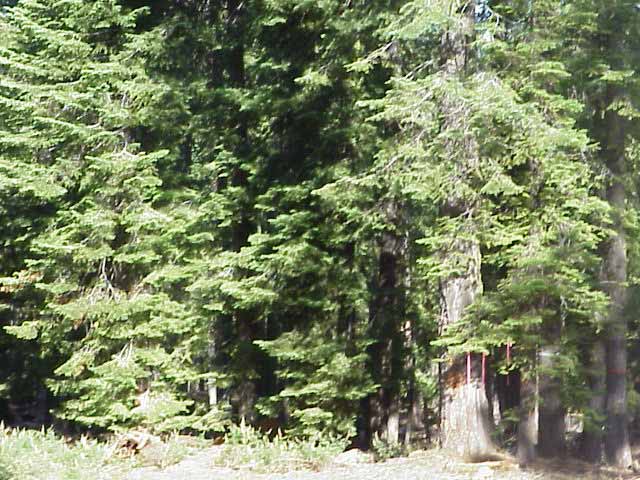
| Ladder fuels comprised of
mainly of white fir trees create impenetrable
conditions preventing light from reaching the
forest floor. |
|
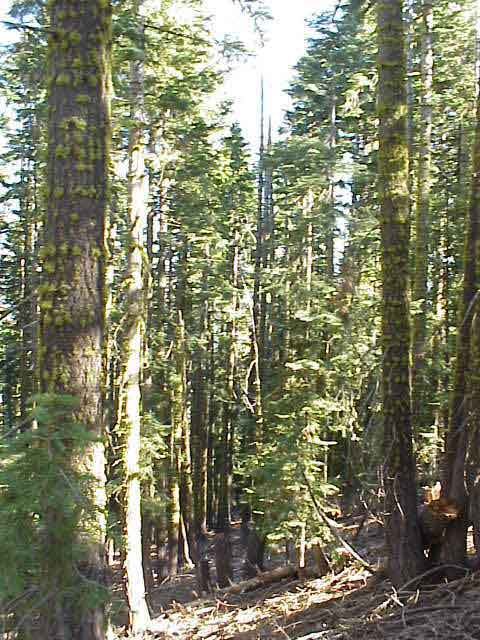 |
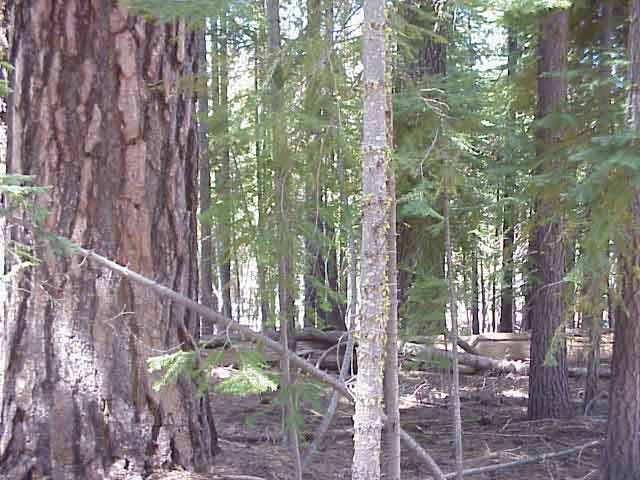
| Mixed among the fuels were
scattered large, older ponderosa pine (Pinus
ponderosa) and Douglas-fir (Psuedotsuga
mensiesii). When a fire started in this
forest, with these fuel conditions, all trees and
wildlife habitat could be at risk. |
|
| |
Ladder fuels including
incense cedar (Calocedrus decurrens) along with
the white fir, as well as dead standing small trees and
ground fuels contributed to a very heavy fire hazard. |
|
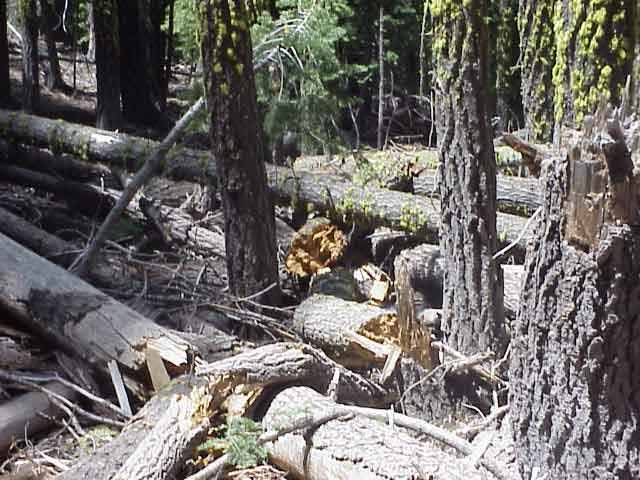 |
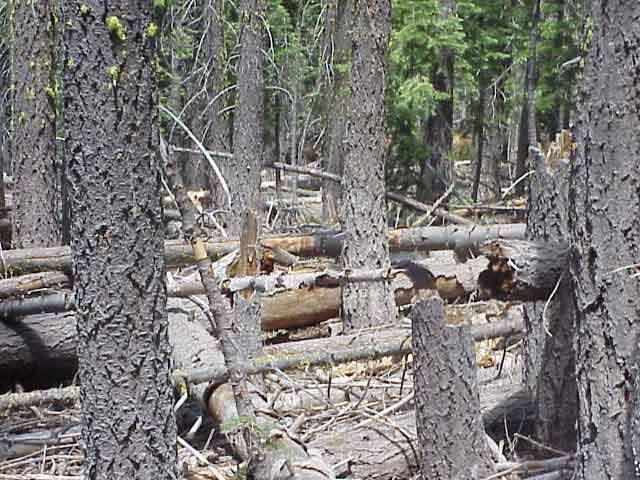 |
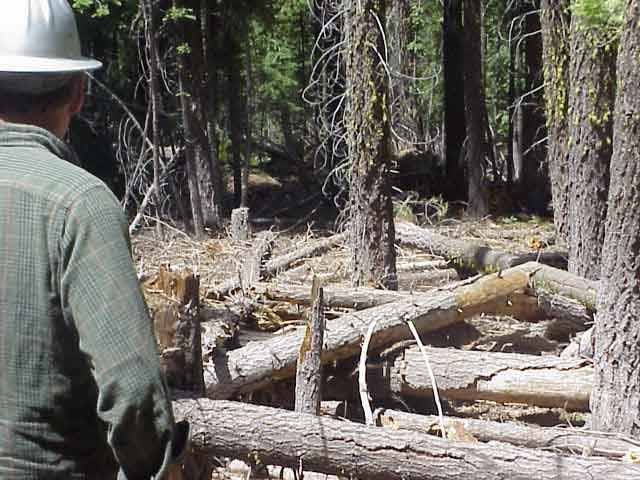 |
| Fuel
accumulations in the 100 hour fuel class (dead and down
logs that are greater then 3 inches) contributed to an
average of 25 tons per acre. |
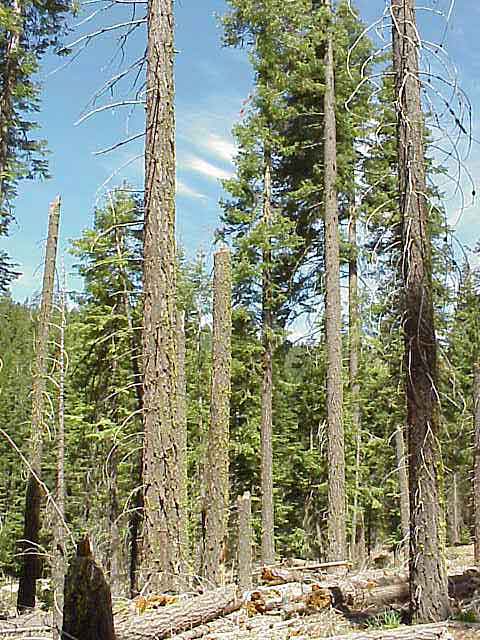
| Concentrations of dead snags
created considerable challenge for the loggers.
Snags of varying size were also retained to
provide for wildlife habitat. |
|
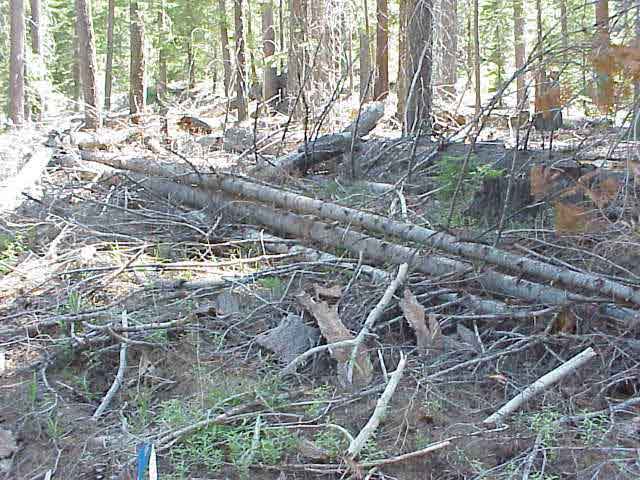
| Fuel in the 1 and 10 hour
class (< 3 inch) were also abundant. |
|
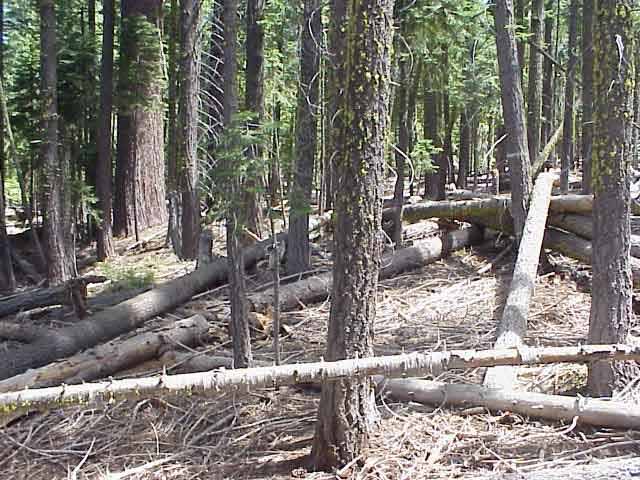
| Removal of the down logs and
other fuel resulted in over 60,000 tons of
biomass being removed. The biomass was enough to
create 30,000 megawatts of electricity, enough
for 30,000 homes for a month. |
|